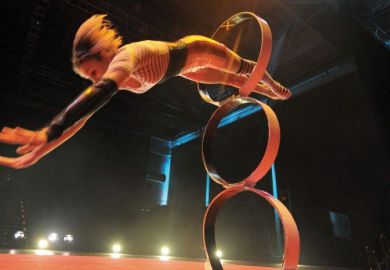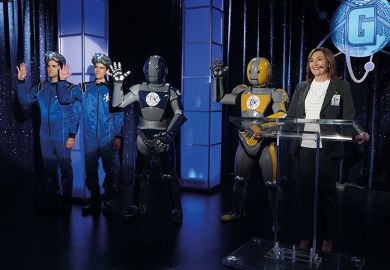Are role models inspirational or a sign of an impoverished imagination? For advocates they offer guidance at key moments of career development regarding what it is possible to achieve and what sort of person one might become. The case against is that they discourage authenticity; they exhort: “Don’t be yourself, be like Professor X!” They might lead also to unrealistic expectations among academics who find themselves in circumstances far removed from those enjoyed by celebrated figures of the past.
The American sociologist Arlie Hochschild has noted the benefits to females starting out on academic careers of having female role models who have been successful in the male-dominated academy, but she also recalls as a teenager rejecting the role models her mother encouraged her to emulate.
The self-help literature that advises on managing an academic career is likewise ambiguous on role models. A good role model can supply confidence and reassurance about the desirability, and indeed the possibility, of building a career in contemporary universities, particularly to people vulnerable to “imposter syndrome”. But one person’s successful trajectory cannot be replicated by someone who comes later; contexts change, and serendipitous connections make every career to some extent unique.
This ambiguity helps to explain why interviewees in a project I am conducting on later academic careers and retirement have responded as they did when I asked them about role models.
I had (naively, it transpires) expected the question to elicit numerous names of forerunners and peers who were judged to have navigated their later careers in ways that brought an identifiable sense of achievement and fulfilment, but surprisingly few candidates have emerged.
In addition, a proportion of those who have been identified have had their case for consideration as a role model qualified by caveats: their achievements would be harder to match in today’s faster-paced and more demanding environment and, anyway, the things that bring satisfaction to one individual may be disappointing to another.
Furthermore, the very idea of a role model may be objected to on principle because of the way it lionises the individuals who are identified as role models. There is something disagreeable when a person is turned into a heroic figure against whom the majority of people are made to look mediocre in comparison.
A related complaint is that attributing success to an individual risks overlooking the part played by that individual’s colleagues and subordinates, along the lines of Bertolt Brecht’s Questions from a Worker Who Reads.
There are echoes here of the way in which obituaries are found to be one-sided, presenting rather selective accounts of their subjects’ lives that focus on the more favourable aspects (however understandable it may be to do so at the time of someone’s death).
People held up as role models may, on closer inspection, turn out to have feet of clay, or at least to have been less consistently saintly than their admirers have portrayed them. We should rightly be wary of hagiography and are correctly reminded that some of the most influential figures in the history of various disciplines had careers that were, by conventional standards, failures (in sociology, Thorstein Veblen, for example).
My interviewees have also stressed that it is difficult to relate to individuals whose reported career trajectories follow a neat and tidy linear pattern of repeated success, which can come across as too good to be true. There is, as Raymond Williams showed in Keywords, an older, less positive meaning of the word “career” relating to being uncontrolled, and it is important not to airbrush out this aspect of work lives that is beyond the power of individuals to influence.
Despite these reservations we may, nevertheless, retain a place for the notion of the role model. A person could be held up as an inspiration to others less because of their achievements than because of their personal qualities.
Indeed, in the academic obituaries that I have been studying as part of my project, these personal qualities are often to the fore. An analysis of the 256 obituaries in Times Higher Education, mostly written by Matthew Reisz, in the five years from January 2015 revealed these qualities to be many and varied.
They range from attention to detail to versatility, and from integrity to open-mindedness. This focus on qualities rather than on achievements makes a role model more human and opens up a wider pool of people from whom role models may be selected, going beyond decorated members of the establishment.
Furthermore, we may be led to acknowledge that what have been celebrated as people’s good points in certain circumstances may in other circumstances be less desirable characteristics. Even when focusing on their qualities, role models still need to be chosen with care.
Graham Crow is professor of sociology and methodology at the University of Edinburgh. He was director of the Scottish Graduate School of Social Science from 2013-16 and deputy director of the ESRC National Centre for Research Methods 2006-15.
Register to continue
Why register?
- Registration is free and only takes a moment
- Once registered, you can read 3 articles a month
- Sign up for our newsletter
Subscribe
Or subscribe for unlimited access to:
- Unlimited access to news, views, insights & reviews
- Digital editions
- Digital access to THE’s university and college rankings analysis
Already registered or a current subscriber?




